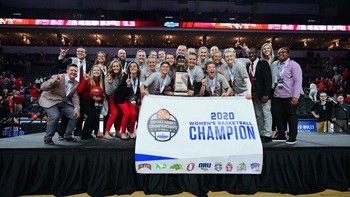USD School of Law named a Best Law School by The Princeton Review
According to Robert Franek, Princeton Review Senior VP-Publisher, “We recommend USD Law as one of the best institutions a student could attend to earn a law school degree. We chose the 169 schools we profile in this book based on our high regard for their academic programs and our reviews of institutional data we collect from the schools. We also solicited and greatly respect the opinions of students attending these schools who reported on their experiences at their schools on our 80-question student survey for the book.”
The Princeton Review’s survey asked 19,500 students at the 169 law schools their opinions of their school's academics, student body and campus life as well as about themselves and their career plans. The student surveys analyzed for this edition were all completed online at http://survey.review.com and conducted during the 2013-14, 2012-13, and 2011-12 academic years.
“It is a great honor for our school to again be recognized for its excellence in legal education as well as its affordability in a time of rising costs. This survey highlights the expertise and accessibility of our faculty and staff who consistently go above and beyond all reasonable expectations to serve our students as they provide a unique educational experience,” said Tom Geu, dean of the USD School of Law.
The book’s two-page profiles of the schools have sections reporting on their academics, student life, admissions information, and graduates’ employment data. In the profile on USD Law, The Princeton Review editors describe the school as: “practical applications for the workplace and ‘focus on the real world more than just understanding case law and the bar exam materials.’” They quote from students attending USD Law who were surveyed by The Princeton Review for the book. Among the student comments, “Having gone to a New York private school for undergrad and paying the private New York school price, when I got my first bill from USD I thought maybe they had left something major off.”
The profiles also have rating scores in five categories that The Princeton Review tallies based on institutional data it collected during the 2013-14 academic year and/or its student survey for the book. The ratings are scores on a scale of 60 to 99. Rating categories are: Academic Experience, Admissions Selectivity, Career, Professors Interesting and Professors Accessible. Among the ratings in the USD Law profile are scores of 86 for Professor Accessibility Rating and 80 for Career Rating. The Princeton Review explains the basis for each rating score in the book and on its site at www.princetonreview.com/law/guide-law-ratings.aspx.
The Princeton Review does not rank the law schools in the book from 1 to 169, or name one law school best overall. Instead, the book has 11 ranking lists of the top 10 law schools in various categories. Ten lists are based entirely or partly on The Princeton Review’s surveys of students attending the business schools. A few lists, such as “Best Career Prospects,” use both student survey and institutional data. The list, “Toughest to Get Into,” is based solely on institutional data. The ranking lists in the book are posted at www.PrincetonReview.com/law-school-rankings.aspx.


